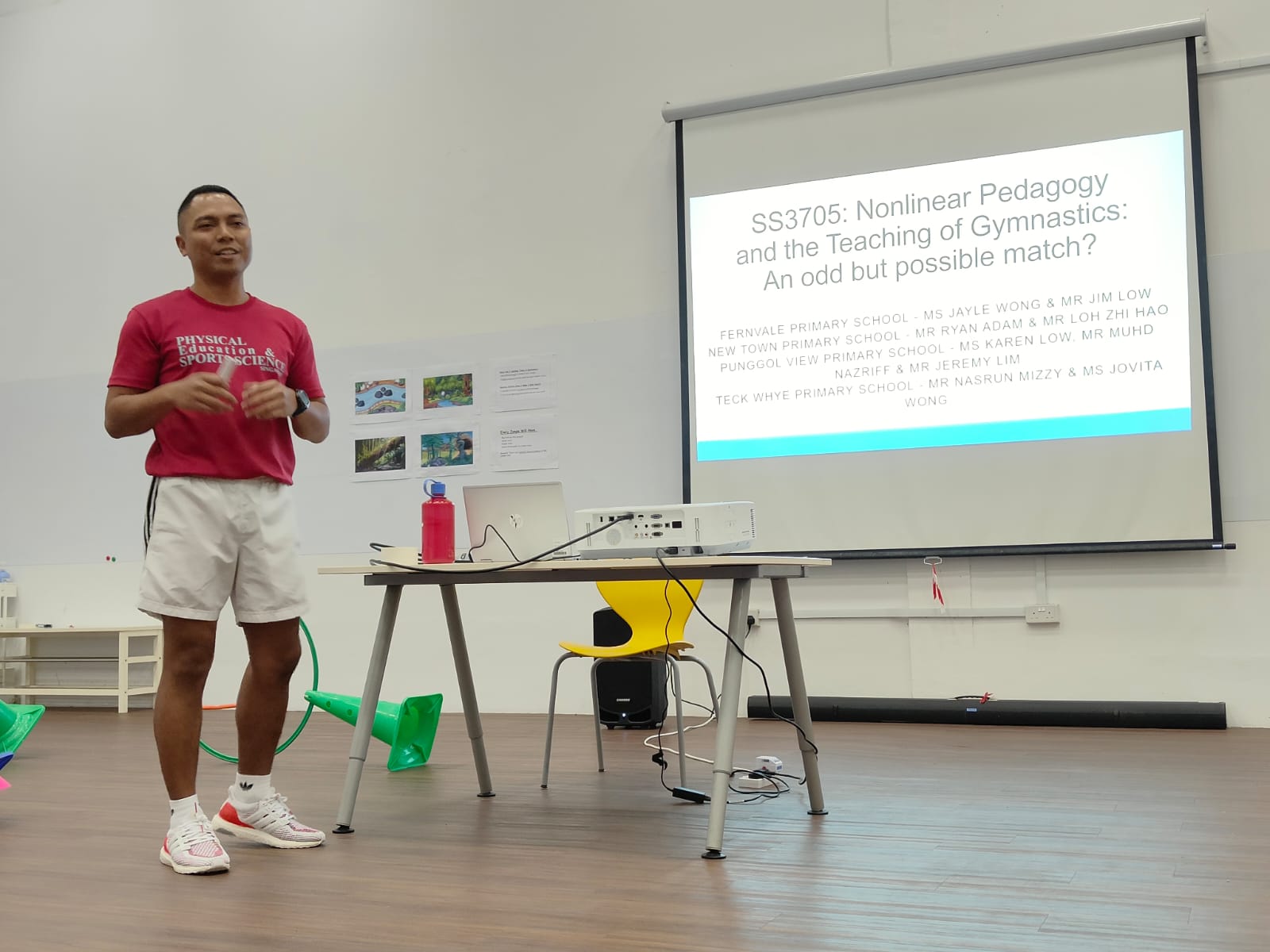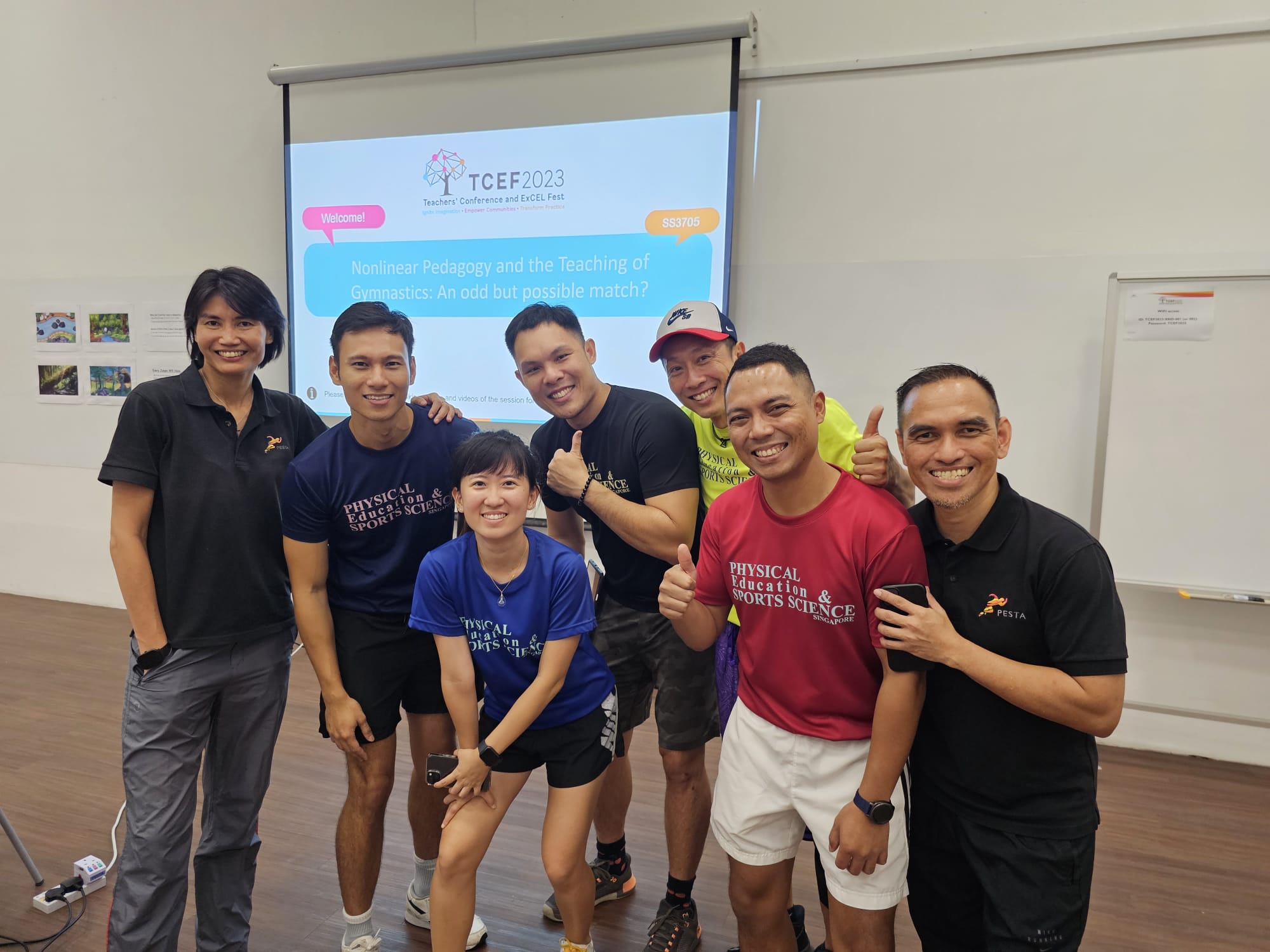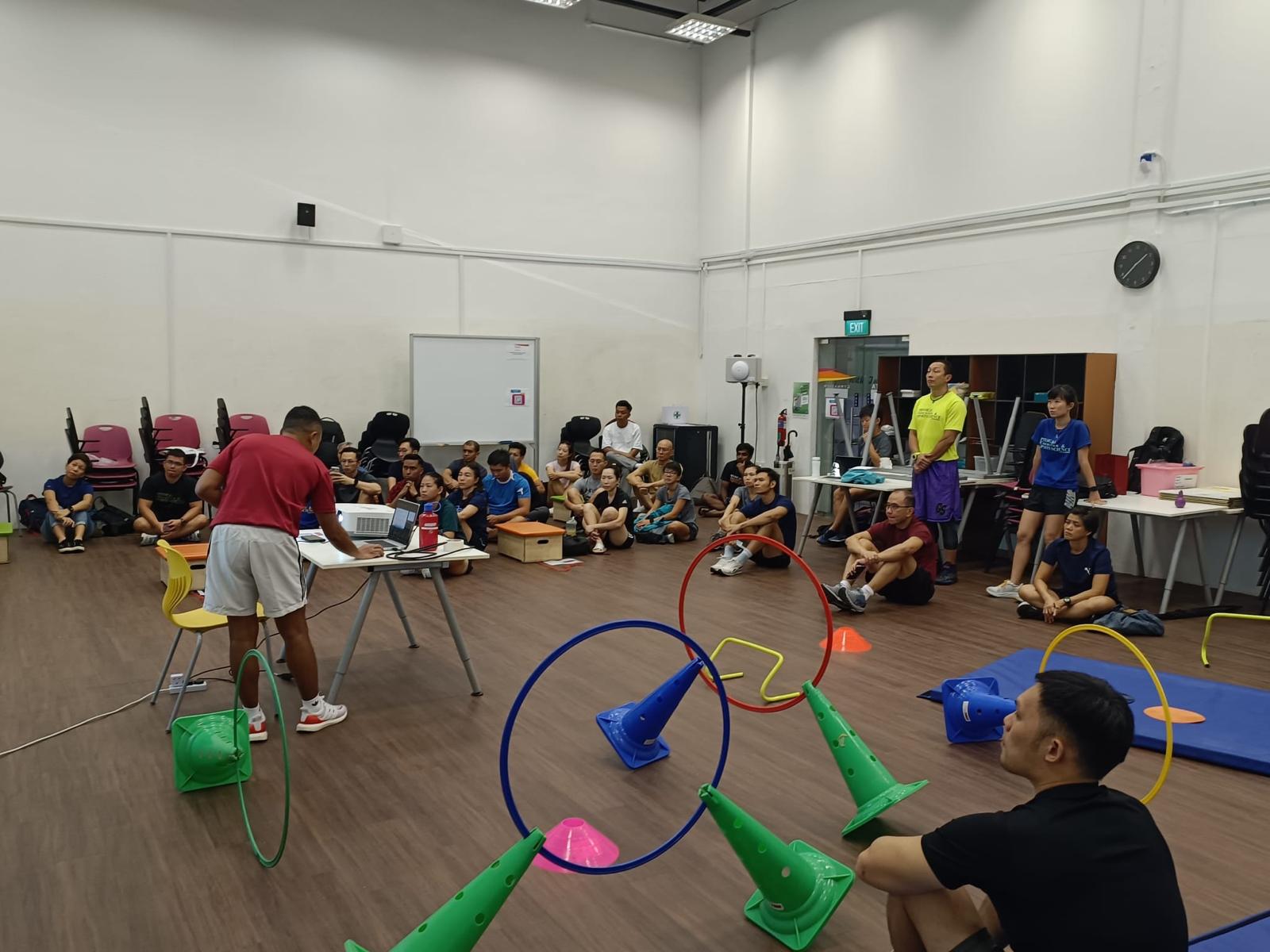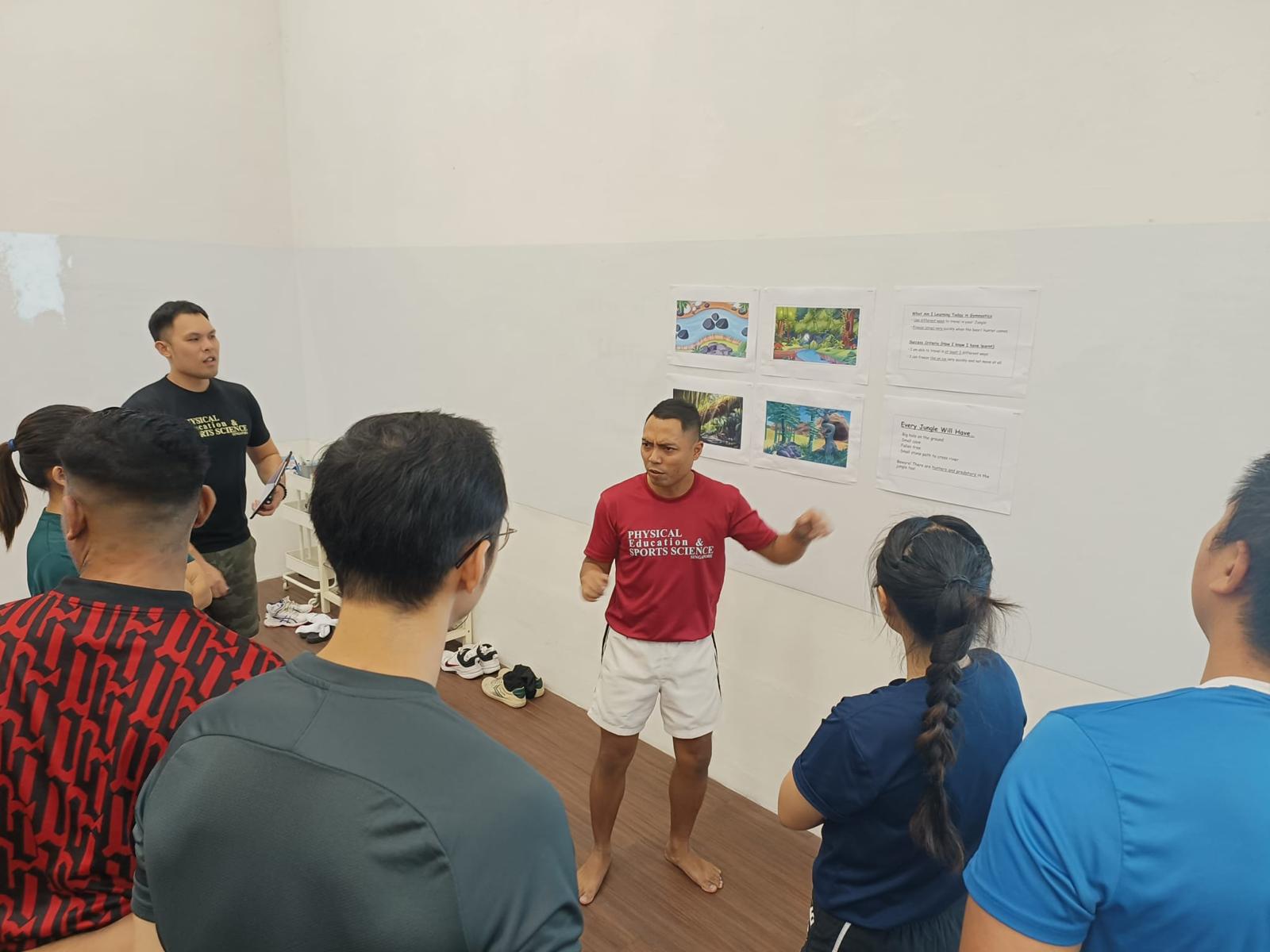Physical Education
Curricular Goal
Physically Active and Healthy Learners
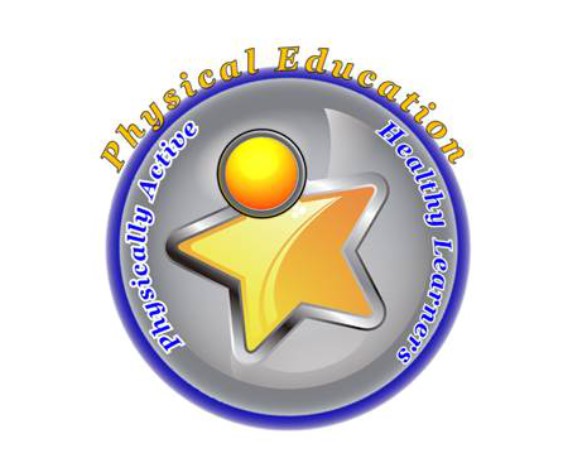
The Physical Education Department wants to cultivate active and responsible students by developing their knowledge, skills, attitudes and values that contribute to a healthy and physically active lifestyle.
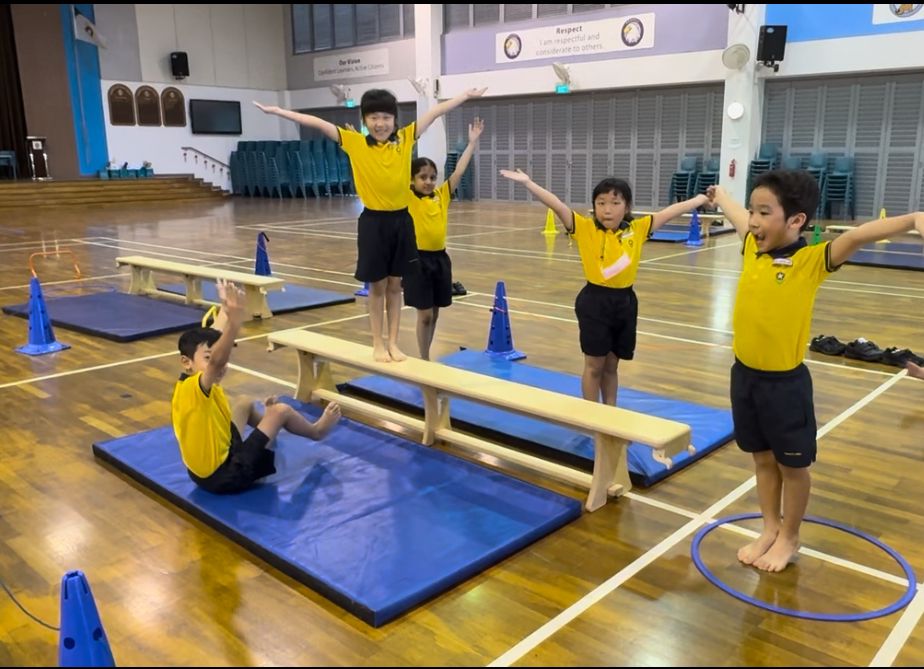
Purpose of Physical Education
The purpose of Physical Education is to develop physically competent and confident individuals who enjoy a lifetime of active and healthy living safely and responsibly.
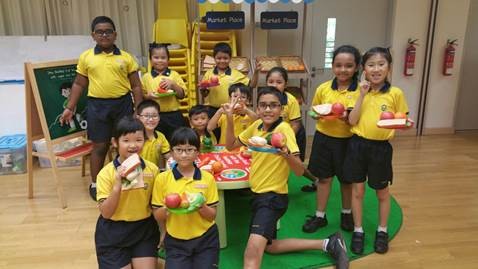
Goals of Physical Education
1. Movement Competence. Students are competent and confident to participate in a range of physical and outdoor activities.
2. Healthy Lifestyle Practices. Students have a personal commitment to healthy lifestyle practices in physical activity, nutrition, sleep, outdoor time and hygiene.
3. Safety Mindset. Students apply risk assessment to manage daily and physical activities with respect to self, others and the environment.
4. Core Values. Students make informed and responsible decisions with regard to personal behaviour and social interactions based on sound values-based judgements.
5. Enjoyment. Students enjoy and value physical activities and healthy living in a sustainable way.
The learning experiences leading to the goals of Physical Education at the primary level are organised according to the three learning areas and content areas/strands as shown below.
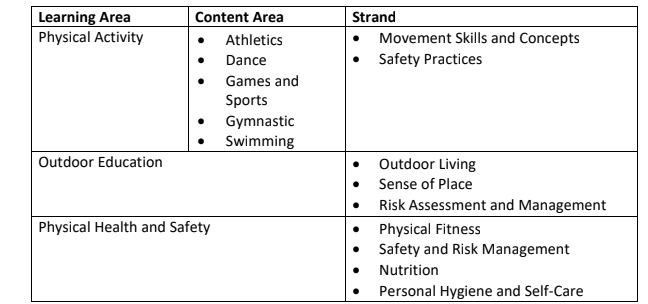
Most content areas for Physical Activity (i.e., Dance, Games and Sports, and Gymnastics), Outdoor Education, and Physical Health and Safety are introduced at Primary 1. For the other content areas under Physical Activity, Athletics is introduced at Primary 4 and Swimming is to be completed by Primary 6.
A balanced participation in Athletics, Dance, Games and Sports, Gymnastics, Swimming and Outdoor Education, with Physical Health and Safety blended into the six areas, is essential to teach students the critical movement skills and concepts. These essential building blocks for developing movement competency provide the necessary movement vocabulary and experiences for learning and performance.
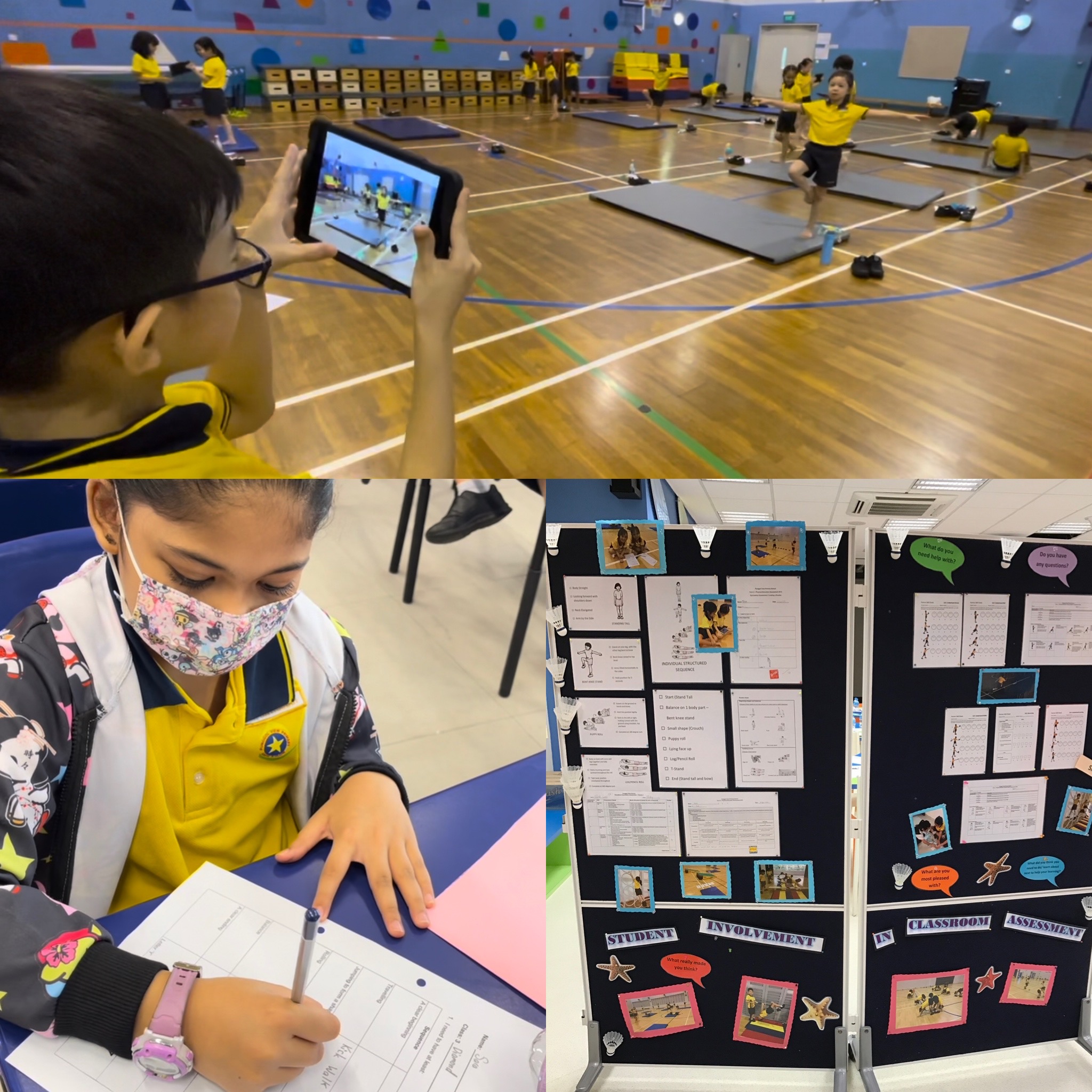
Curriculum Framework
Physical Education seeks to develop the whole child to bring about a nation of physically competent and confident individuals who enjoy a lifetime of active and healthy living safely and responsibly.
The three learning areas of Physical Activity, Outdoor Education, and Physical Health and Safety are pivotal in providing the content for design and enactment of students’ meaningful learning experiences in, about and through movement, leveraging the physical and social environment in providing real-life contexts to strengthen students’ learning. A balanced and well-designed Physical Education curriculum, delivered through effective pedagogies and purposeful assessment will enable students to apply the skills, knowledge, practices and values to lead an active and healthy lifestyle, and acquire the 21st century competencies to thrive in the fast changing and complex world. Below shows a diagrammatic representation of the Physical Education Curriculum Framework.
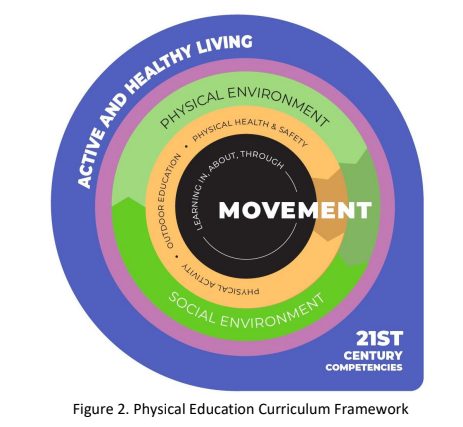
Developing 21st Century Competencies through Physical Education
To help our students thrive in a fast-changing world, MOE has identified competencies that have become increasingly important in the globalised world of the 21st century.
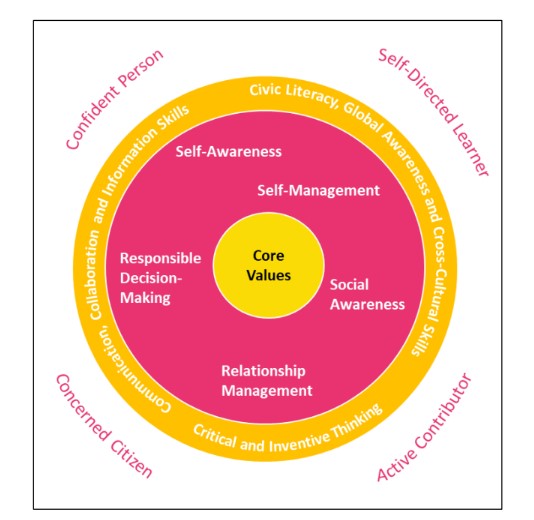
Physical Education (PE) is more than just playing sports or exercising. It's about developing important qualities in students that will help them succeed in life. PE focuses on six core values: Respect, Resilience, Responsibility, Integrity, Care, and Harmony. These values are connected to how students think, feel, and act, which are part of what's called Character and Citizenship Education (CCE).
In PE classes, students learn not only how to move and play sports but also how to be better people. There are specific goals for each value, and students are given different activities to help them learn and practise these values as they grow through school. These activities are designed to help students become better problem solvers, critical thinkers, and communicators.
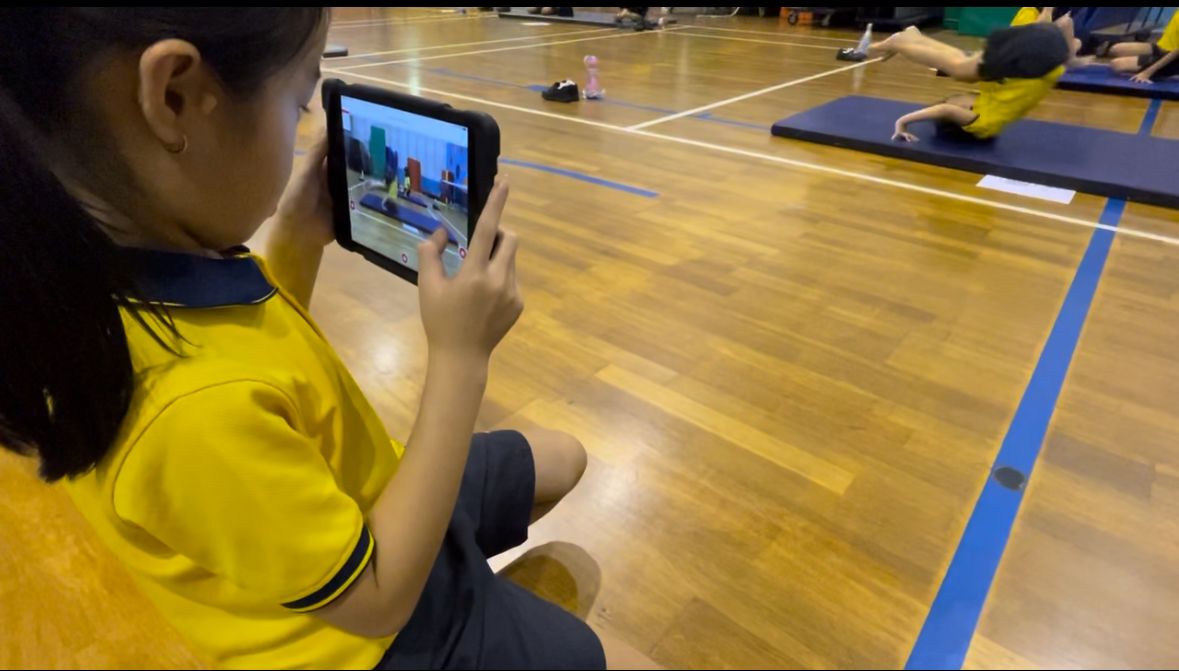
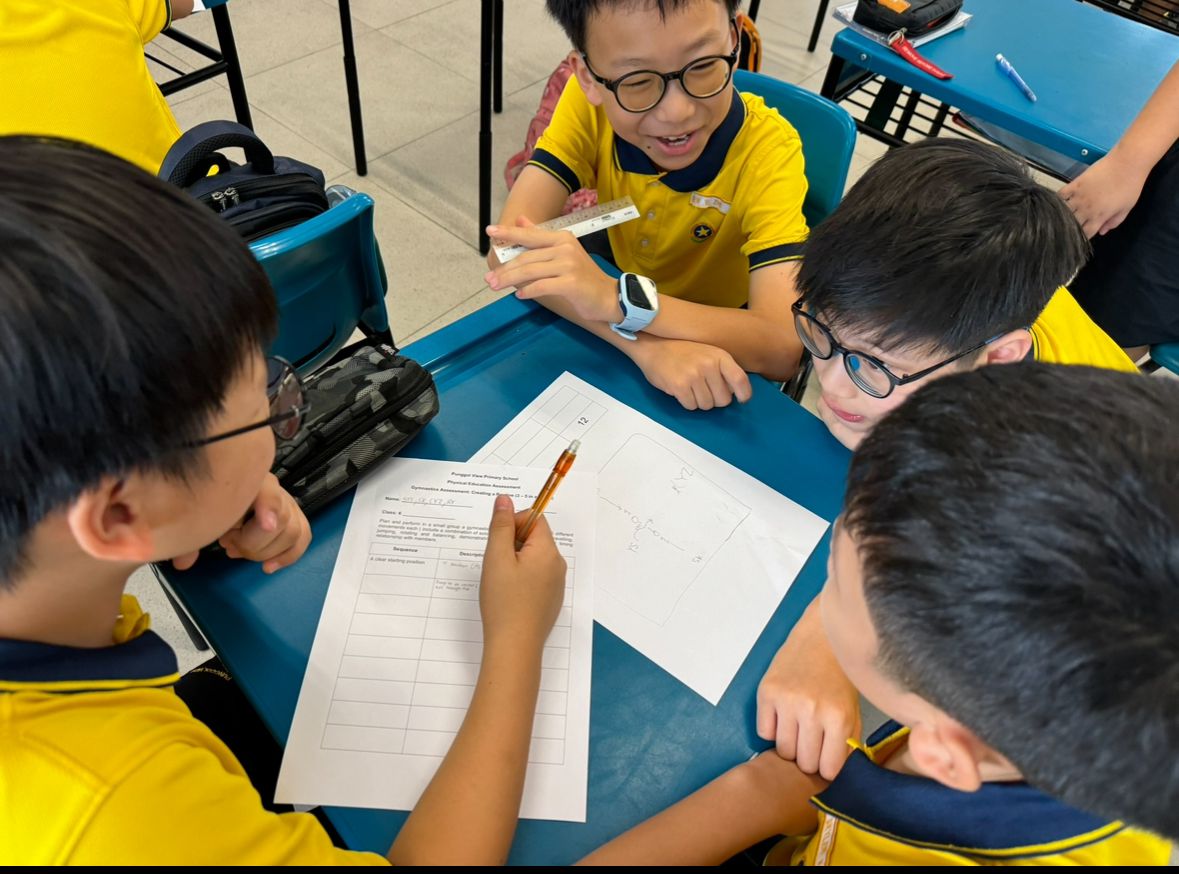
For example, when students dance or do gymnastics, they get to be creative and express themselves. In team sports, they learn how to work together, communicate effectively, and solve problems on the spot. All of these activities help students build important skills for the future, especially in today's digital world.
So, PE isn't just about physical health—it's also about building character and preparing students for success in life.
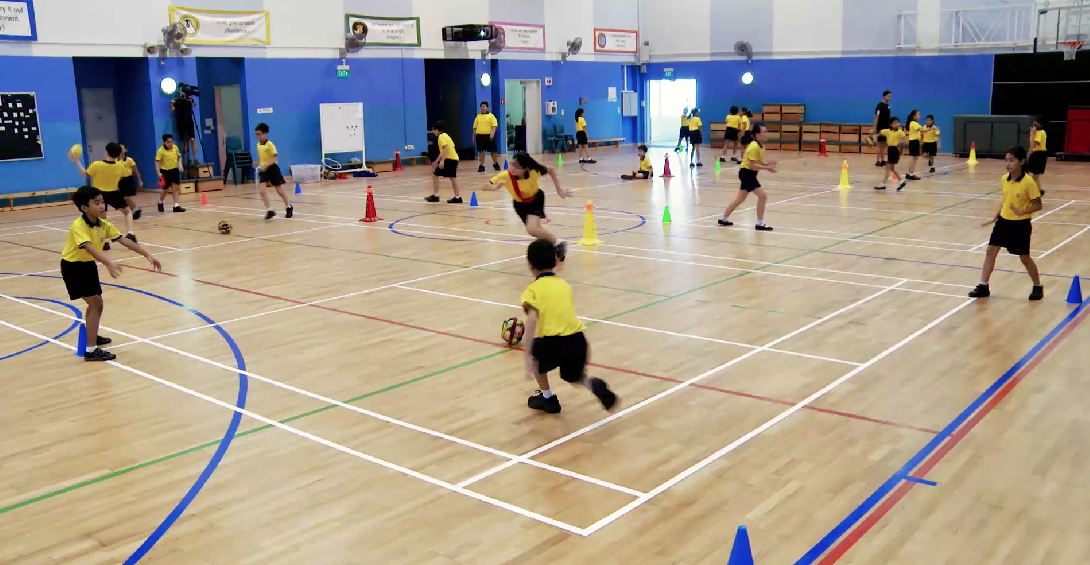
PAMtastic Week
PAMtastic Week is a unique thematic collaboration between the Physical Education, Art and Music Department. This is held in the 6th week of Term 1, 2 & 3. PAMtastic week is a platform to develop students holistically across all domains - Moral, Emotional, Social, Cognitive, Aesthetics and Physical. The objective is to promote a Healthy Lifestyle that encompasses Physical, Emotional and Health Awareness through PE, Arts (Visual) and Music activities. We wish to inspire our students with a lifelong love of learning by providing them with opportunities to explore, create, and develop skills with a common theme. Different activities for each level are specially curated to bring out the vibrancy of aesthetics in the school and as a platform to showcase student's talent and diversity, while developing their physical well-being.
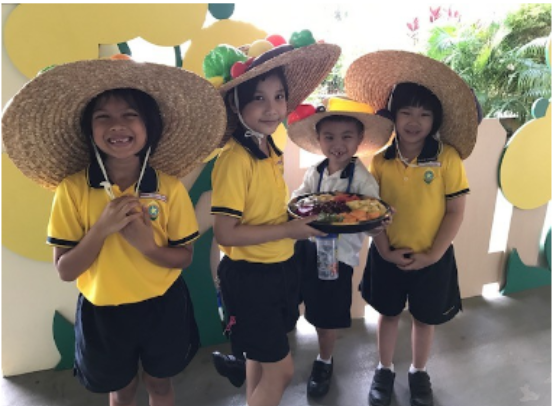
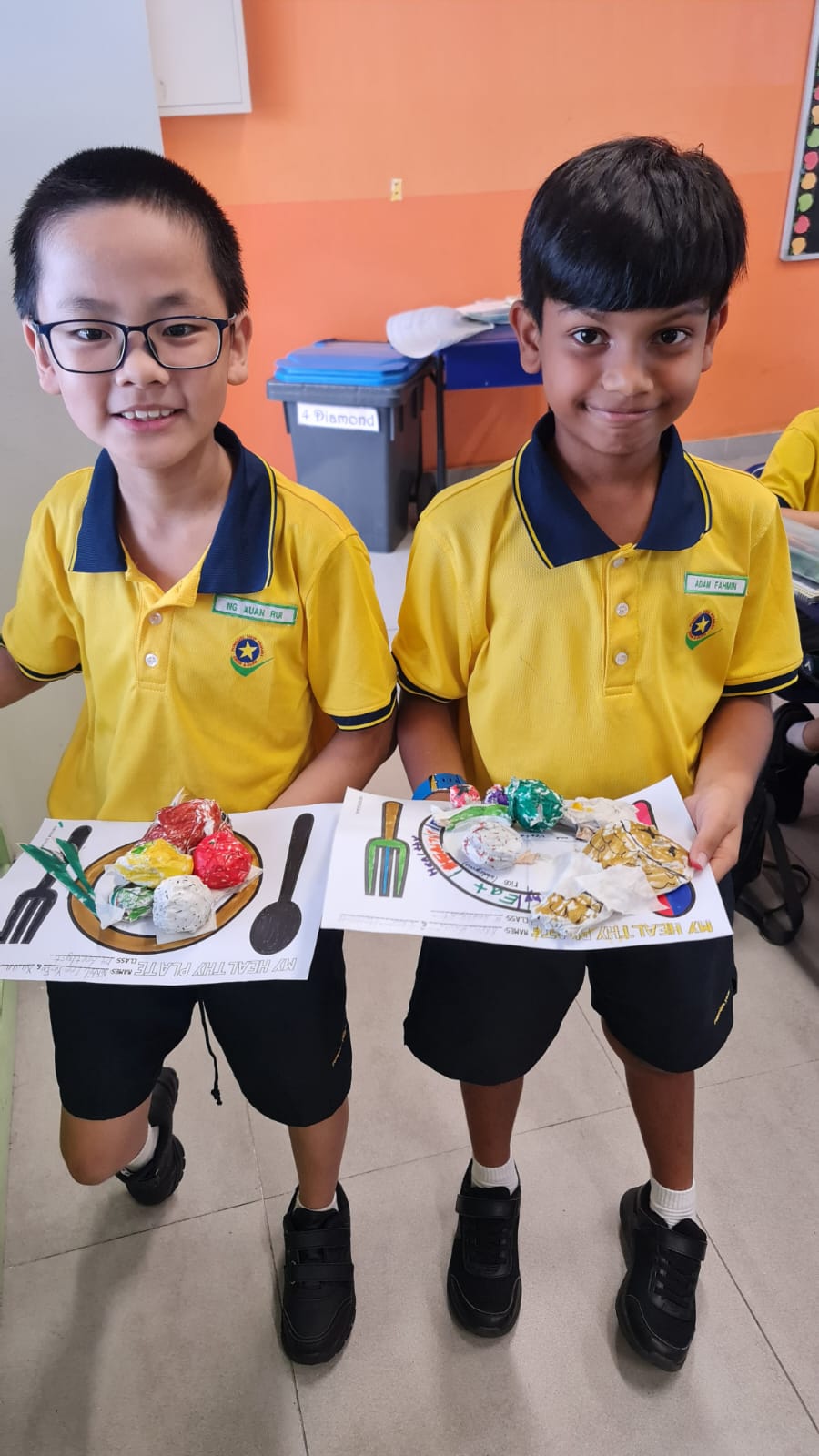
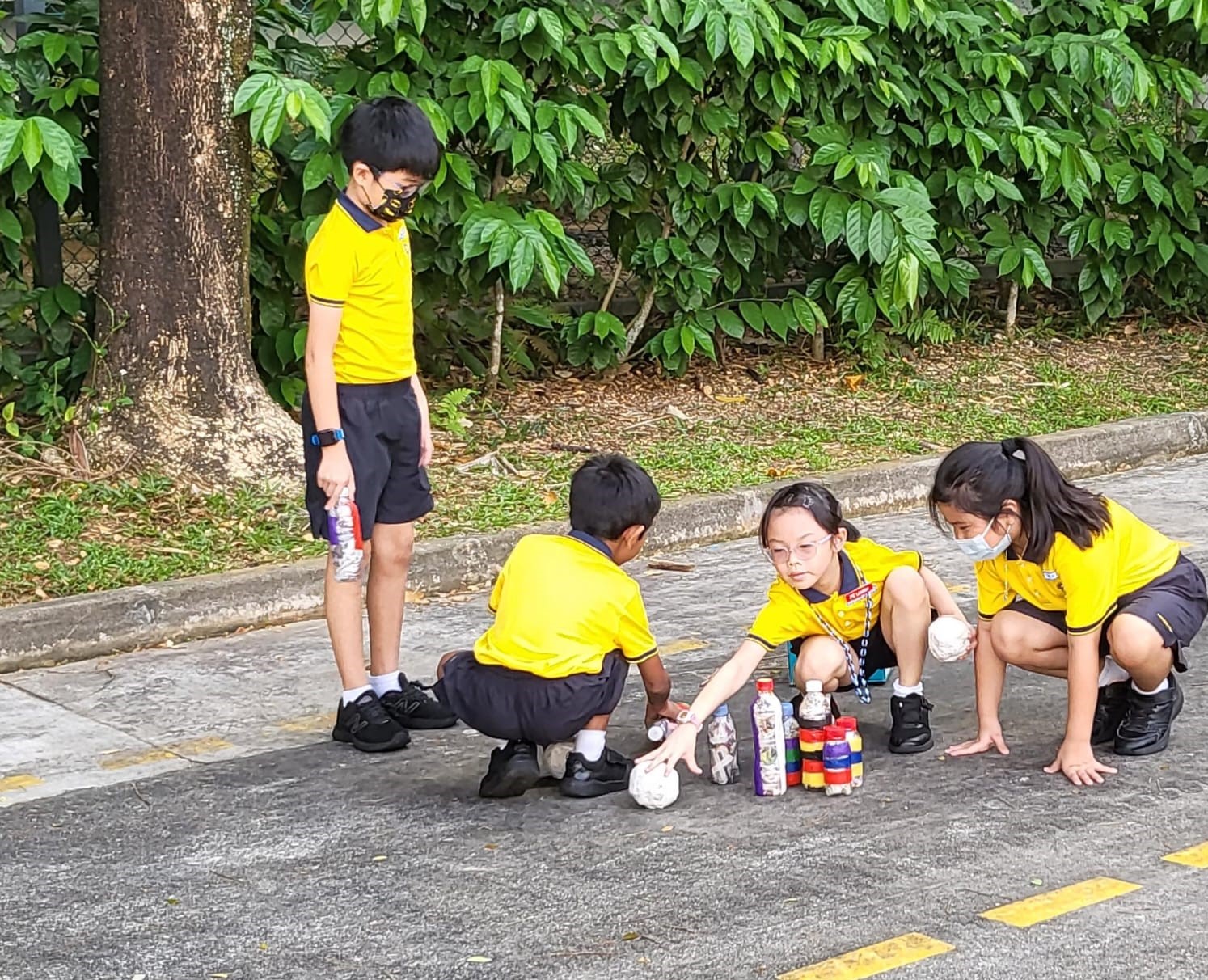
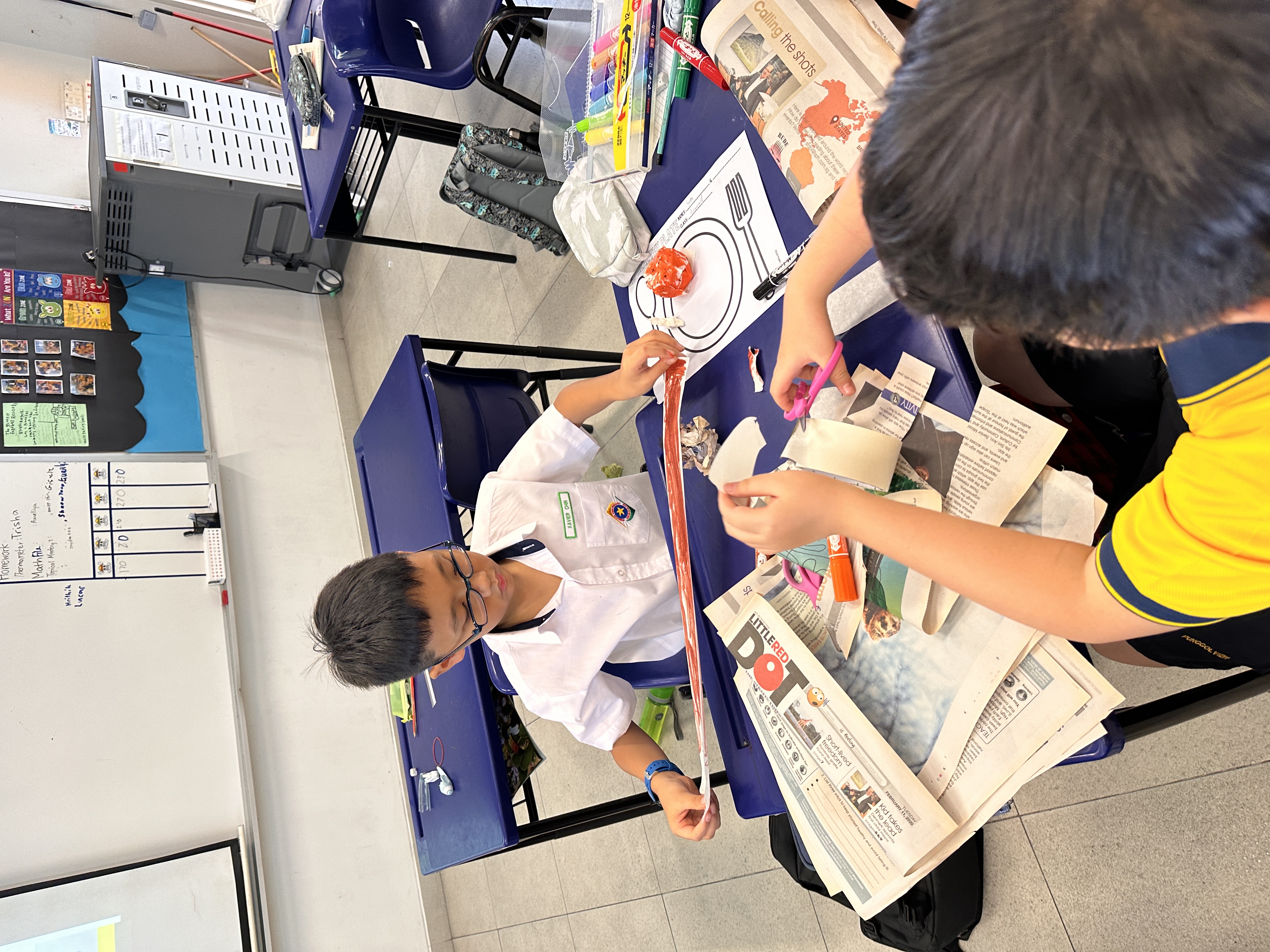
Professional Development
The PE Department has been very privileged to work with various professionals. Dr. Sara Ashworth, Dr. Steve Mitchell and Associate Professor Chow Jia Yi.
The late Dr. Sara Ashworth earned her MA from the University of Mississippi and an EdD from Temple University in Philadelphia, PA. From 1987-2008, Dr. Sara Ashworth taught the Spectrum of Teaching Styles in the Department of Elementary Education at Florida Atlantic University (FAU).
Dr. Ashworth observed a total of 8 PE lessons conducted by our teachers followed by post lesson discussions after each lesson on the Spectrum of Teaching Styles used in teaching episodes focusing specifically on the decision making processes and behavioural expectations. The team also explored the possibilities of using the Inclusive Style (Slanting Rope idea) to enable students with varied abilities to make decisions on performing different levels of task representation.
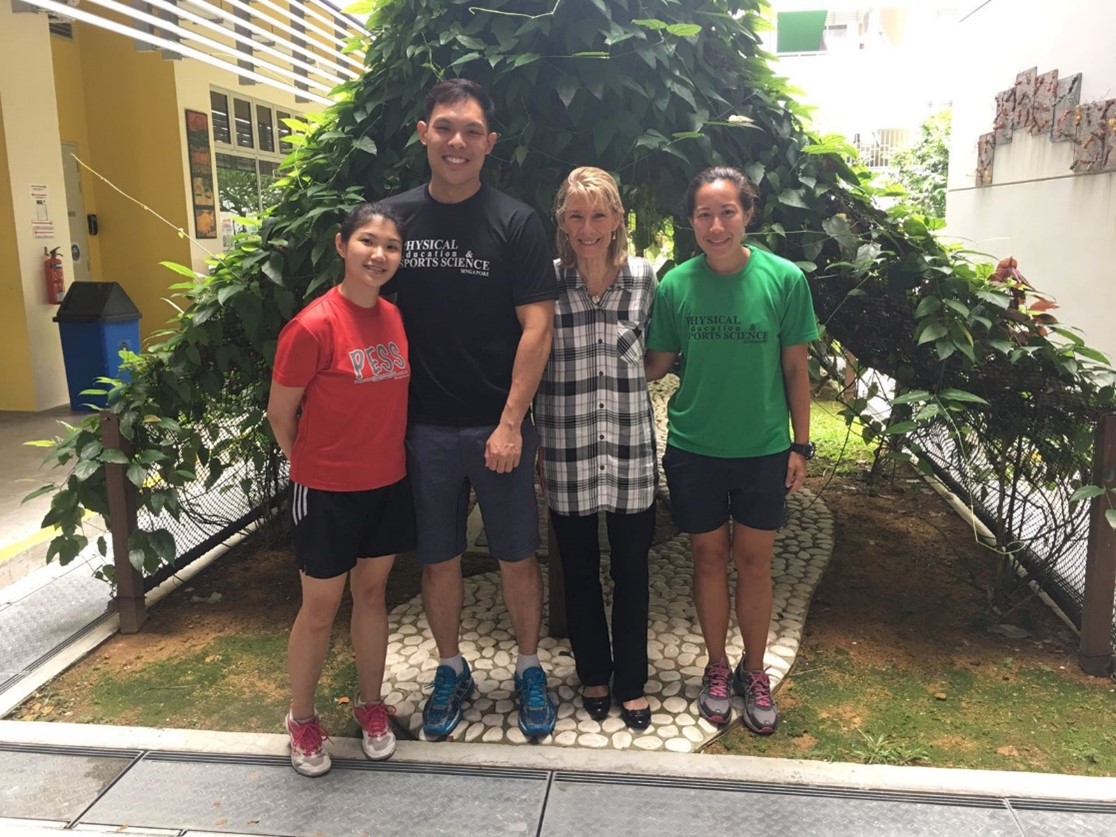
Dr. Steve Mitchell, a professor of physical education teacher education at Kent State University, received his undergraduate and master’s degrees from Loughborough University, England, where the tactical approach was developed. He earned a PhD in teaching and curriculum at Syracuse University.
The team of Punggol View Primary School (PGVP) Teachers worked with Dr. Mitchell over 3 weeks on the Game Centred Approach. This approach taps on inquiry, through the use of questions to allow students to take charge of their own learning. The approach was carried out over 10 lessons, with Dr. Mitchell teaching the first class of each lesson cycle before the respective teachers made modifications to the lesson for their respective classes. The collaboration involving Dr. Mitchell culminated in a demonstration class for 20 teachers and officers from PESTA and PSOEB. The team of teachers at PGVP then presented their two part collaboration at the 2020 Physical and Sports Education Virtual Conference.
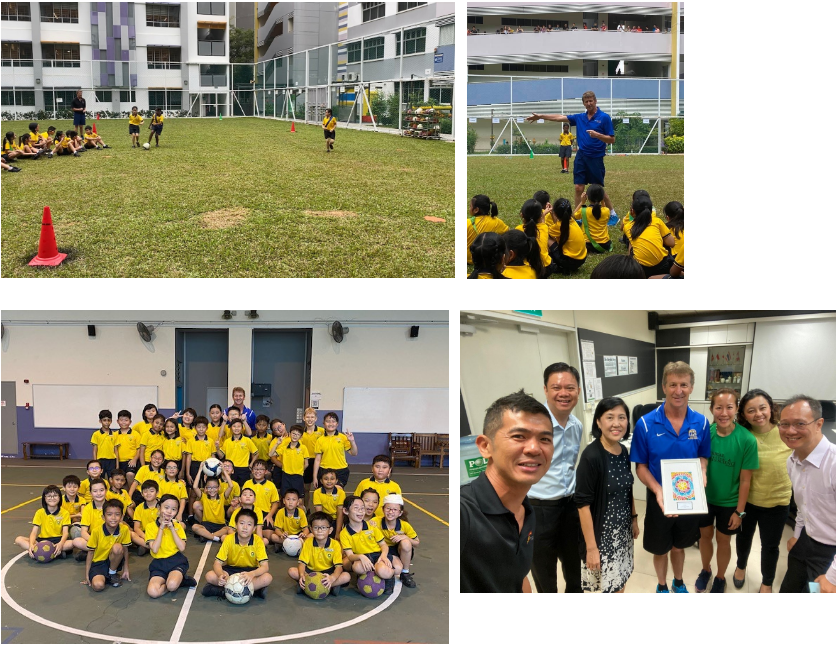
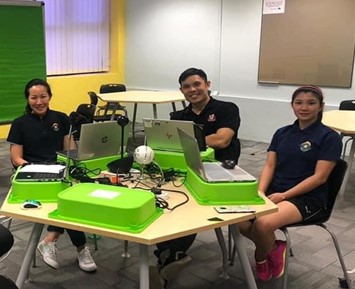
The NLP project utilizing a Constraints-Led Approach (CLA) in PE gymnastics, a subset of Nonlinear Pedagogy (NLP), involves collaboration among 9 teachers from 4 schools across different zones, with support from Dr. Chow Jiayi (National Institute of Education), Gym Coach Mr. Sng, and Physical Education & Sports Teacher Academy (PESTA).
This collaborative effort aims to revolutionize gymnastics education by embracing a student-centered approach that promotes exploratory learning and variability in practice, as advocated by Chow et al. (2016).
By empowering students with autonomy to explore and discover individualized movements, the project seeks to enhance decision-making skills and foster confidence and competence among participants. Through careful planning and delivery of engaging learning experiences, the project aims to provide students with ample opportunities to develop both their physical and cognitive abilities within the context of gymnastics.
